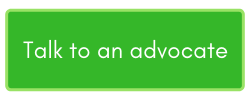All of these statistics point to the reality that for many seniors, their healthcare is lacking coordination. And, often we find our elderly clients have become overwhelmed trying to manage all of this, and their records have become quite disorganized. This isn’t simply a matter of inconvenience. It can be a matter of life and death. The right information might not be available when a medical provider needs it. Problems with coordination and communication cause many adverse medical events. Lack of coordinated healthcare often contributes to functional decline, increased care needs, and nursing home placement.
So, how can you help your elders get their healthcare organized? Our patient advocates offer simple ways to help get “health organized”.
Three Simple Ways to Help Your Parent Get Their Healthcare Organized
1. Pull together health history and vital health information.
You may need to help your loved one recall and/or track down this information. Often, our patient advocates find themselves in a bit of a detective role. They’re pulling together the person’s “medical story”. Without knowing the plot of the story up until now, the picture is unclear to those providing care. Therefore, they can’t provide the best healthcare. Here’s what to include:
- Make a summary of key family health history, including family members with cancer, heart issues, and other genetically-linked issues. Rather than have to recall all this information for any new doctor’s appointment or surgery, keep a record you can simply refer to or provide. It will also help other family members to have this written down.
- List out personal health history: surgeries and dates as well as past conditions that were treated, outcomes, etc.
- List current conditions and their status, as well as current treatments.
- Make a list of all your healthcare providers and their contact information, what they’re being seen for, and when the next appointment or follow up is scheduled. Also note providers you were treated by in the past but have no current appointments with, in case you need to get records or information or those issues reoccur.
- Keep a current list of medications and their dosages/schedule. Also, be sure to include what they’re taken for and, if possible, how long you’ve been taking them.
- Document any allergies to medications, foods, and substances. Also, be sure not to just list medications you’re allergic to, but medications on which you’ve experienced side effects or that have not been effective.
2. Create a health file.
This might be a paper notebook or file that the client or their responsible party keeps on hand, but cloud-based versions are particularly useful. For some clients, they maintain a paper file and we create a record on our cloud-based portal so that our care managers and other care team members can access it. We recommend you have a secure, easy-access online copy since emergencies don’t always happen conveniently.
Along with the information listed above, this should include your loved one’s advance directives, insurance information and any related paperwork. This might be a good time to be sure Dad has updated advance directives and nothing needs to be changed. The healthcare surrogate will need to be able to provide those documents, as well as have access to all of this key information when they need to help. This is why we always remind clients that simply executing those documents is not enough. You need to prepare those who will be called upon to make decisions and assist.
Many providers now use electronic portals, so find out if they do and what you need to do to access them. This may be part of building your health records as you may be able to access information via those portals such as test results and doctor’s notes. Keep copies of tests, visit summaries and so forth in your health file. This also saves you time and headaches if you switch providers or need to provide test results or records to anyone.
MyMedicare Portal
You should also consider helping Dad set up his MyMedicare.gov portal. MyMedicare is a free, secure online service for managing your personal Medicare information. You can use it to check information about enrollment, eligibility, and claims. You can help your doctor get access to all the necessary information about your Medicare coverage, drugs, and health records. Get your MyMedicare.gov On the Go Report and keep it with you. For many elders, their personal health file records combined with something like this portal will be quite sufficient for keeping their healthcare organized.
3. Set up a group calendar.
Consider setting up a shared group calendar to track events, appointments, and tasks. For example, if you and your sister help Dad manage his care, you can easily keep track of upcoming appointments and divide up tasks. If Dad can use the calendar, it will be ideal. We suggest you set it up for him and show him how to use it with just the basics (of course that is, unless Dad is tech savvy, in which case he may not need your help!). If Dad won’t use an online calendar, your “care team” still can. Create a paper calendar or planner for Dad and write in his scheduled appointments. Meanwhile, your family can keep track of everything online.
The cloud-based calendar makes life so much easier for managing all the moving parts of Dad’s healthcare. It is so much easier to see when he has his next appointment scheduled, what preventative care he has not yet done, what appointments you may need to attend and more. You can set reminders and recurring events.
We’d also recommend helping Dad prepare for his visits with a pre-visit checklist. We created this one specifically to help elders doing telehealth visits, but the majority of it can be used for any healthcare appointment.
Experiencing difficulty getting Dad to be honest about his health? Check out our article “How Can I Get Dad to Stop Lying to Me about His Health?”
Need help? We’re here to offer advice, resources, assistance setting up the health file, and advocacy.








